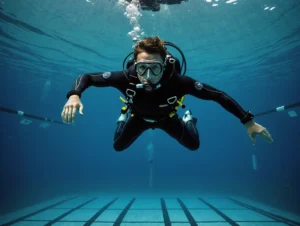Diving is an exhilarating activity that offers a unique perspective of underwater worlds, but it also requires careful attention to the environment and the body’s responses to various conditions. Often, divers encounter symptoms in pools that they mistakenly interpret or overlook, which can compromise safety and enjoyment. Understanding common pool symptoms and their true implications is essential for maintaining safe diving practices and preventing potential accidents.
Common Pool Symptoms Divers Often Misinterpret and Overlook
Many divers regularly encounter symptoms such as dizziness, nausea, fatigue, or a tingling sensation during pool sessions. These signs are sometimes dismissed as minor issues, like dehydration or simple fatigue, without considering more serious underlying causes. For instance, a tingling sensation in the limbs might be attributed to cold water or overexertion, yet it could also indicate early signs of decompression stress or insufficient oxygen levels. Similarly, brief episodes of lightheadedness may be seen as dehydration but could signal a drop in blood sugar or other physiological concerns. Overlooking these symptoms or attributing them to benign factors can lead divers to ignore warning signs that require immediate attention or adjustment in diving behavior.
The Impact of Misreading Pool Symptoms on Diver Safety
Misinterpreting or ignoring symptoms in the pool setting can have significant safety consequences. If a diver perceives symptoms such as dizziness or disorientation as insignificant, they may continue diving without addressing underlying issues, increasing the risk of accidents like shallow water blackouts, panic, or decompression injuries. Inadequate response to early warning signs can also impair judgment, leading to poor decision-making underwater or during ascent. Moreover, failure to recognize symptoms correctly might delay necessary medical intervention, resulting in more severe health issues or long-term damage. Ultimately, accurately identifying and responding to pool symptoms is vital for ensuring safe diving experiences and preventing avoidable emergencies.
In conclusion, the ability to correctly interpret pool symptoms is a crucial aspect of safe diving practices. Divers should remain vigilant and responsive to their body’s signals, understanding that what might seem like minor discomforts could be indicators of more serious issues. Proper education and awareness about these symptoms can significantly reduce risks and enhance the safety and enjoyment of diving activities.

